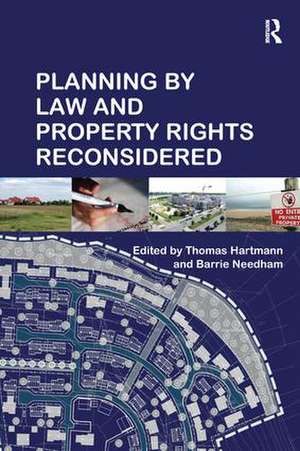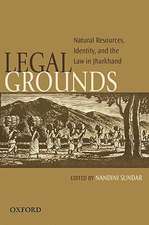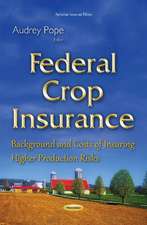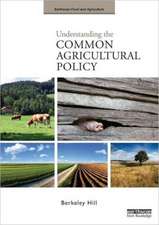Planning By Law and Property Rights Reconsidered
Editat de Barrie Needham, Thomas Hartmannen Limba Engleză Paperback – 17 oct 2016
| Toate formatele și edițiile | Preț | Express |
|---|---|---|
| Paperback (1) | 469.34 lei 6-8 săpt. | |
| Taylor & Francis – 17 oct 2016 | 469.34 lei 6-8 săpt. | |
| Hardback (1) | 1059.45 lei 6-8 săpt. | |
| Taylor & Francis – 28 mai 2012 | 1059.45 lei 6-8 săpt. |
Preț: 469.34 lei
Nou
Puncte Express: 704
Preț estimativ în valută:
89.82€ • 93.20$ • 75.07£
89.82€ • 93.20$ • 75.07£
Carte tipărită la comandă
Livrare economică 17-31 martie
Preluare comenzi: 021 569.72.76
Specificații
ISBN-13: 9781138256941
ISBN-10: 1138256943
Pagini: 248
Dimensiuni: 156 x 234 x 13 mm
Greutate: 0.45 kg
Ediția:1
Editura: Taylor & Francis
Colecția Routledge
Locul publicării:Oxford, United Kingdom
ISBN-10: 1138256943
Pagini: 248
Dimensiuni: 156 x 234 x 13 mm
Greutate: 0.45 kg
Ediția:1
Editura: Taylor & Francis
Colecția Routledge
Locul publicării:Oxford, United Kingdom
Cuprins
Contents: Introduction: why reconsider planning by law and property rights? Thomas Hartmann and Barrie Needham; Part I Methods for Exploring the Possibilities: Interests and rights in property, and their place in land-use; Exploring the effects of property rights using game simulation, Esther Geuting and Barrie Needham. Part II Coping with the Wider Institutional Framework: Planning law reform and change in post-apartheid South Africa, Mark Oranje and Stephen Berrisford; Talking about property rights over tea: discourse and policy in the US and Europe, Harvey M. Jacobs; Managing riverside property: spatial water management in Germany from a Dutch perspective, Thomas Hartmann and Tejo Spit. Part III Coping with Environmental Change: Improving institutional conditions for adaptive planning in the Netherlands, Joost Tennekes; Global climate change and the stability of property rights, A. Dan Tarlock; Government or governance? The challenge of planning for sustainability in the Ruhr, Michael Wegener. Part IV Coping with Uncertainty and Lock-Ins: Planning and uncertainty: how Dutch municipalities try to reduce uncertainty on the market for industrial properties, Huub Ploegmakers and Erwin van der Krabben; The Dutch office space tragedy: unlocking the lock-in, Leonie B. Janssen-Jansen; The fraught relationship and the conflicts in dealing with uncertainty, Edwin Buitelaar; Conclusion, Barrie Needham and Thomas Hartmann; Index.
Notă biografică
Thomas Hartmann, is a lecturer in Planning at the Utrecht University, The Netherlands and Barrie Needham is Professor of Spatial Planning at Radboud University Nijmegen, The Netherlands.
Recenzii
"[A]s a reflection about the various aspects and challenges of planning by property rights, the book is certainly a welcome addition to an area of academic inquiry that is becoming increasingly important and deservedly so." - International Planning Studies, Claudio De Magalha, University College London, UK
Descriere
This book makes the (often implicit) theory behind planning by law and property rights explicit and relates it to those challenges. It starts by setting out what is understood by planning by law and property rights, and investigates - theoretically and by game simulation - the relationships between planning law and property rights. It then places planning law and property rights within their institutional setting at three different scales: when a country undergoes enormous social and political change, when there is fundamental political debate about the power of the state within a country, and when a country changes its legislation in response to European policy.










